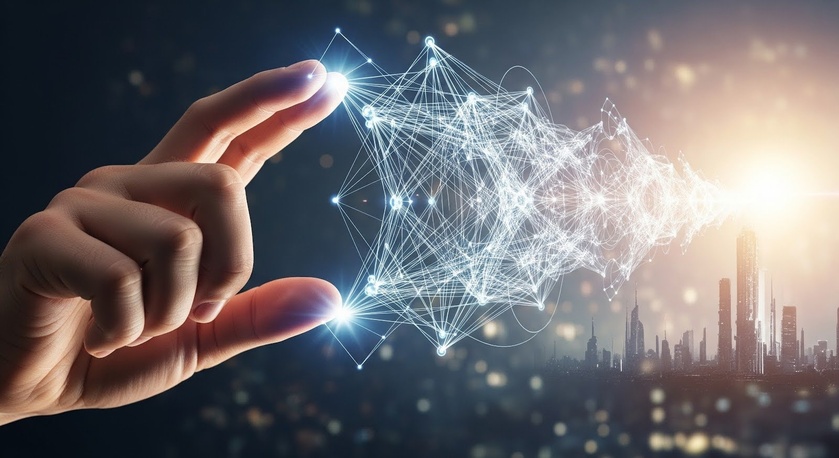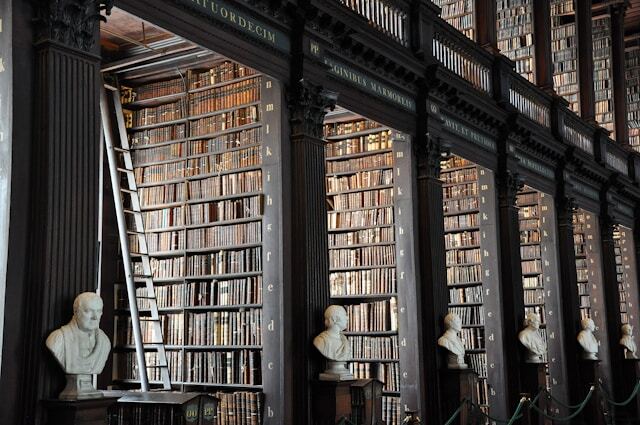Artificial intelligence has reached astonishing milestones. Machines can write, predict, diagnose, and even create. They process data with precision no human can rival. Yet for all their computational brilliance, one truth remains: they do not understand the weight of a decision.
TheoSym, the Irvine-based AI company challenging conventional automation, argues that intelligence and judgment are not the same thing. Intelligence analyzes; judgment chooses. One calculates outcomes, the other carries their moral consequence.
In a world rushing toward automation, TheoSym insists that the future of AI depends not on replicating the human mind, but on preserving the conscience behind it.
The Mirage of Machine Objectivity
Modern technology culture is enamored with data-driven certainty. Algorithms are seen as neutral arbiters, immune to human bias and error. But reality has shown otherwise. Predictive policing tools have deepened inequalities by reflecting historical prejudices. Automated recruitment systems have favored certain demographics based on skewed training data. Even news feeds designed for engagement have quietly amplified misinformation.
The illusion of machine objectivity hides a simple fact: algorithms are built by humans, trained on human data, and inherit human flaws. When their decisions go unchecked, bias scales faster than any single person could perpetuate.
TheoSym’s stance is clear: machines can assist, but they cannot replace moral discernment. Without human judgment, AI risks becoming a mirror that magnifies our blind spots.
TheoSym’s Foundational Belief: Augment, Don’t Abdicate
TheoSym’s Human-AI Augmentation (HAIA) philosophy is a direct response to this growing concern. It rejects the notion that automation should replace human thinking. Instead, TheoSym designs systems that keep humans in the loop, enhancing their capabilities rather than sidelining them.
The HAIA Virtual Assistant is a practical embodiment of this vision. It pairs machine precision with human oversight, ensuring that the efficiency of automation never overshadows ethical reflection. TheoSym’s technology does not remove people from decision-making, it amplifies their ability to make better ones.
Sam Sammane, TheoSym’s founder and author of The Singularity of Hope, captures this conviction in characteristically philosophical terms:
“Judgment is not the product of data but of wisdom: the patient synthesis of knowledge, ethics, and experience. A machine can predict outcomes, yet it cannot understand why one choice is right and another is wrong. Intelligence without morality is mechanical imitation, not understanding. At TheoSym, we do not seek to replace this human faculty; we seek to strengthen it. The future of AI is not mechanical domination, but moral collaboration—a union between precision and conscience that defines what it means to be truly intelligent.”
TheoSym’s position reframes AI not as a rival to human intelligence, but as its apprentice. It is a vision that resonates with industries increasingly aware of the costs of blind automation.
When Judgment Matters Most
There are moments where human oversight is essential. In medicine, diagnostic algorithms can identify patterns invisible to the eye, yet it takes a doctor’s judgment to interpret those results in light of a patient’s story. In law, AI can parse precedents, but only human reasoning can weigh justice against circumstance. In education, adaptive systems can recommend lessons, but it is the teacher who discerns what a child needs to hear.
These are not exceptions to automation—they are reminders of its boundaries.
TheoSym’s HAIA framework protects these boundaries by keeping responsibility firmly in human hands. It turns automation into a collaborator rather than a commander.
Sammane describes this balance as both ethical and existential. “The greatest danger in our pursuit of artificial intelligence is not that machines will think too much—but that humans will think too little. Judgment is not inefficiency; it is the essence of accountability.”
“When we preserve the human role in decision-making, we preserve meaning itself. The goal is not to create systems that replace thought, but to build companions that remind us to think better,” he emphasized.
TheoSym’s vision stands in quiet defiance of the automation race. It argues that progress is not defined by how much we hand over to machines, but by how wisely we guide what we build.
The Cost of Abdicating Human Judgment
When organizations entrust decisions entirely to machines, the result is often speed without wisdom. AI can identify trends, predict probabilities, and even simulate empathy, but it cannot carry accountability. When a financial algorithm denies a loan unfairly, or a medical system misclassifies a diagnosis, there is no one for the affected person to confront, only code.
This erosion of responsibility is what TheoSym warns against. Automation, unchecked, risks creating a world where no one is answerable for the consequences of a decision.
Sam Sammane articulates it with the gravity of a philosopher-engineer: “When we surrender judgment to code, we surrender responsibility for our choices. It is not intelligence that defines civilization; it is accountability. The great danger is not that machines will rise above us, but that we will fall beneath them by forgetting our duty to decide.”
He went on: “Judgment demands courage; it requires the willingness to stand by an outcome and say, ‘This was my choice.’ Machines cannot do that. And that is why judgment will always belong to the human spirit.”
TheoSym’s Path Forward: Designing for Shared Intelligence
TheoSym’s systems are built on the conviction that AI must remain a collaborator, never a replacement. Its Human-AI Augmentation Virtual Assistant (HAIA VA) illustrates how this can work in practice.
The AI component handles repetitive or data-heavy tasks: responding instantly, learning patterns, and organizing information. Human operators remain present to oversee, interpret, and guide those processes. This partnership creates a feedback loop: machines improve through human insight, and humans make more informed choices through AI’s support.
This approach also reframes ethics as a design principle, not an afterthought. TheoSym engineers treat moral reasoning as a form of intelligence, something to be designed around, not merely regulated after.
In Dr. Sammane’s words:
“An intelligent system that lacks moral awareness is incomplete. The goal is not simply to create tools that obey, but partners that understand purpose. When AI and human judgment operate together, something remarkable happens: the machine gains direction, and the human gains clarity. This is the essence of shared intelligence: precision guided by conscience.”
Human Judgment as a Strategic Advantage
In an age where businesses compete on data and speed, judgment has become the rarest resource. Organizations that preserve human oversight gain not only trust but creative resilience. They can adapt to nuance, interpret uncertainty, and make ethical decisions that data alone cannot justify.
TheoSym’s model offers a reminder that ethics and advantage are not opposites. They reinforce each other. As consumers grow skeptical of faceless automation, companies that center human decision-making stand apart.
“The companies that will endure are not those that automate everything, but those that know what must never be automated. Judgment, empathy, and imagination are the foundations of civilization,” Dr. Sammane said.
“Machines may one day surpass us in speed, but they will never surpass the human capacity to care. When we build technology to serve that capacity, we build a future that deserves us.”
A Future Led by Human-Centered Intelligence
TheoSym’s message is not anti-technology but pro-humanity. It envisions a world where machines extend the reach of human wisdom rather than replace it. This is more than a design philosophy; it is a moral stance on what progress should mean.
In Sammane’s closing reflection, the principle feels both urgent and timeless:
“The measure of progress is not how autonomous our machines become, but how wisely we guide them. Judgment is not a relic of the past but our compass for the future. If we forget it, our intelligence will devour itself. But if we preserve it, AI will not diminish us; it will deepen what it means to be human.”



















